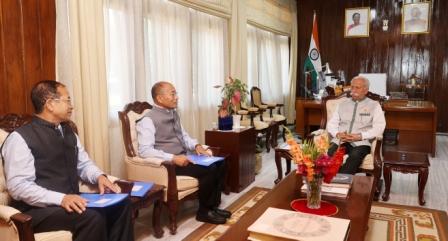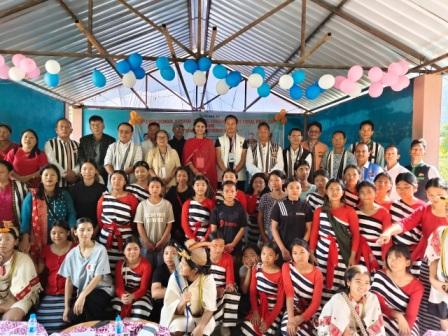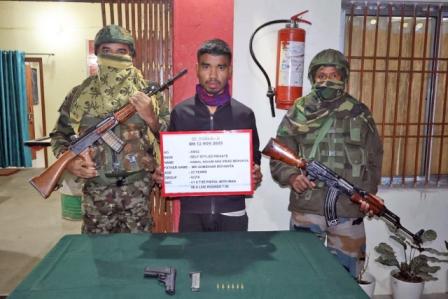-
Arunachal to hold Panchayat, municipal bodies election on Dec 15…
-
 State Election Commissioner calls on Governor
State Election Commissioner calls on Governor
-
 DC inaugurates school amenity
DC inaugurates school amenity
-
AAPSU women’s wing conducts awareness drive for schoolgirls in Pakke-Kesang
-
Governor extends National Press Day greeting
-
PM Modi virtually lays foundation of Eklavya Model Residential School…
-
 ULFA cadre surrenders during joint operation by security forces
ULFA cadre surrenders during joint operation by security forces
-
Raj Bhavan celebrates State Foundation Day of Uttarakhand, Jharkhand
-
Acheso celebrates Janjatiya Gaurav Diwas
-
DC inspects strategic Panggo-Jorging Defence Road
Dr Shabina Ahmed, MD., FIAP
The United Nations marks 2025 under the theme "Advancing Neurodiversity and the UN Sustainable Development Goals (SDGs)", for World Autism Awareness Day, observed every year on 2nd of April. This year’s theme highlights the intersection between neurodiversity and global sustainability efforts, and recognizes that ‘neurodiversity’ is not just a matter of social justice, but a critical component of achieving the SDGs. The theme thereby calls for a shift towards creating inclusive environments in education, employment, and society at large, ensuring that everyone has the opportunity to participate fully and contribute to building a better world for all.
Arunachal Pradesh has taken a significant step towards creating a supportive community for individuals with Autism Spectrum Disorder (ASD) with the opening of the JA-Centre for Autism and Child Development (JACA-CD) in Aalo. This marks a milestone in our collective efforts to promote autism awareness and provide essential services to those who need them.
The figure above, according to the 76th round of the National Statistical Office (NSO) survey conducted between July and December 2018, shows there is a higher percentage of disabled men than disabled women in the state of Arunachal Pradesh. However, there is scanty data on children with developmental delays and within the autism spectrum.
Across India, comprehensive studies on neurodevelopmental disorders remain critically limited, particularly in remote regions like the Northeast. This lack of data hinders accurate prevalence estimates, impedes the development of targeted interventions, and obstructs effective policy formulation. According to a study published in the Indian Journal of Psychological Medicine, the prevalence of autism in Northeast India is estimated to be around 1 in 100 children.
In Arunachal Pradesh, where access to healthcare and diagnostic services can be challenging, it is essential that we raise awareness about autism and promote early intervention. The lack of awareness and access to services in these areas not only affects countless children and families but also hinders the nation’s progress towards achieving the UN Sustainable Development Goals (SDGs).
This deficiency is compounded by geographical challenges, and limited resources, resulting in a significant gap in understanding the true scope of the issue. Consequently, children with developmental delays and autism often go undiagnosed or receive delayed interventions, perpetuating disparities in access to essential services and support, highlighting an urgent need for increased research investment and data collection. While autism awareness has improved significantly in India's urban areas, rural regions continue to face significant challenges in understanding and supporting individuals with autism.
Achieving SDG 4 (Quality Education), SDG 8 (Decent Work and Economic Growth), and SDG 10 (Reduced Inequalities) requires a concerted effort to address the needs of individuals with autism. Increased research will help us understand the prevalence and specific needs of children with ASD in rural contexts. Intervention programs, including early screening, therapy, and family support, are crucial for improving their quality of life.The JACA-CD centre in Aalo should play a major role in furthering this.

Kenter Joya Riba
(Managing Editor)She is a graduate in Science with post graduation in Sociology from University of Pune. She has been in the media industry for nearly a decade. Before turning to print business, she has been associated with radio and television.
Email: kenterjoyaz@easternsentinel.in / editoreasternsentinel@gmail.com
Phone: 0360-2212313

